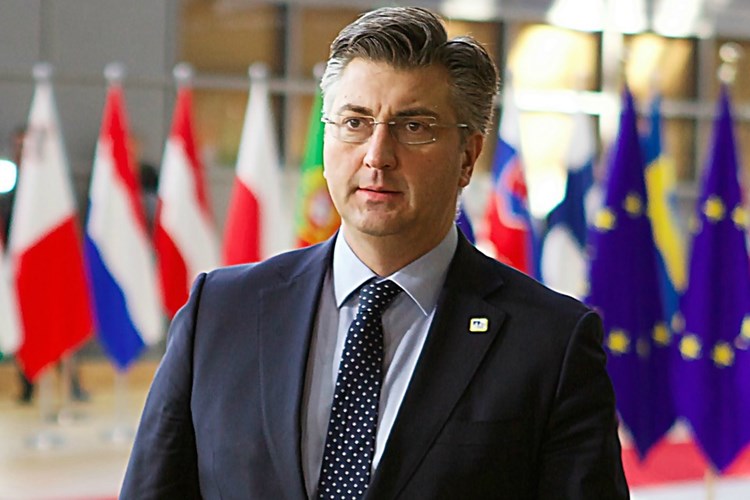- Published: 26.02.2018.
Croatia supports lead candidate process and higher contributions to budget
Croatia is supportive of the "Spitzenkandidat" concept, that is lead candidate process, for the election of the European Commission President, and is generally supportive of increasing contributions to the European Union budget, however, Zagreb opposes the automatism for possibly making cohesion funding dependable on the rule of law, Prime Minister Andrej Plenkovic said in Brussels on Friday where he was attending an informal meeting of 27 member-states' leaders.
As part of the Leaders' Agenda, EU leaders, including Commission President Jean-Claude Juncker, held an informal discussion on institutional issues, including the composition of the European Parliament after the UK leaves the EU and the nomination of the president of the European Commission. The future of the Multiannual Financial Framework (MFF) after 2020 was also on the agenda.
As far as the Spitzenkandidat concept is concerned, we support that approach, we find it good and that it reinforces the democratic legitimacy and makes EU elections truly European. It also gives additional strength to the future European Commission president," Plenkovic said arriving at the summit meeting.
In the so-called “Spitzenkandidaten” (German for lead candidate) process, European political parties designate one candidate each for the post of EU Commission president, ahead of European elections. This system was first used in 2014, to select current Commission President Juncker of the European People's Party (EPP) that garnered the highest percentage of the vote.
The European Parliament has recently adopted a resolution on retaining this election system and, whereas German Chancellor Angela Merkel supports it, French President Emmanuel Macron is one of the vociferous opponents.
The second topic of the informal meeting is how to fill a budget gap of 12-14 billion euros annually with the exit of Britain from the EU bloc. Plenkovic said that Croatia was generally ready to increase its contributions, having in mind the fact that in the coming 10 years, the EU budget should give additional strength to equal regional development, direct payments to farmers, education, youth employment and tackling illegal migrations.
The idea to make the allocation of cohesion funds dependable on abidance by the principles and values of the EU has been circulating for some time among some member-states amidst criticism against certain countries, for instance Hungary and Poland, for violations of those values.
"What is essential is that member-states abide by fundamental values on which the Union is based. This is most important," Plenkovic said, adding that Croatia did not back the idea of making the allocation of cohesion funding dependable on matters concerning the rule of law.
Plenkovic proposes a long-term reform of EU original contributions.
Plenkovic attends int'l conference on Sahel
On Friday morning, Plenkovic attended an international conference on Sahel, dedicated to West Africa’s Sahel region including five countries inhabited by 70 million people on aggregate.
On Thursday, Croatia's government decided to pay 100,000 euros to the regional action plan for Sahel. Plenkovic said today that the decision reflected Croatia's solidarity and full awareness of the problems facing that region. Last year, Croatia paid 200,000 euros for the fund designated for Sahel.
The EU supports the Sahel countries - Burkina Faso, Chad, Mali, Mauritania, and Niger - in areas of shared interest such as security, migration, terrorism, the humanitarian response, resilience building and long-term development.
Text: Hina
